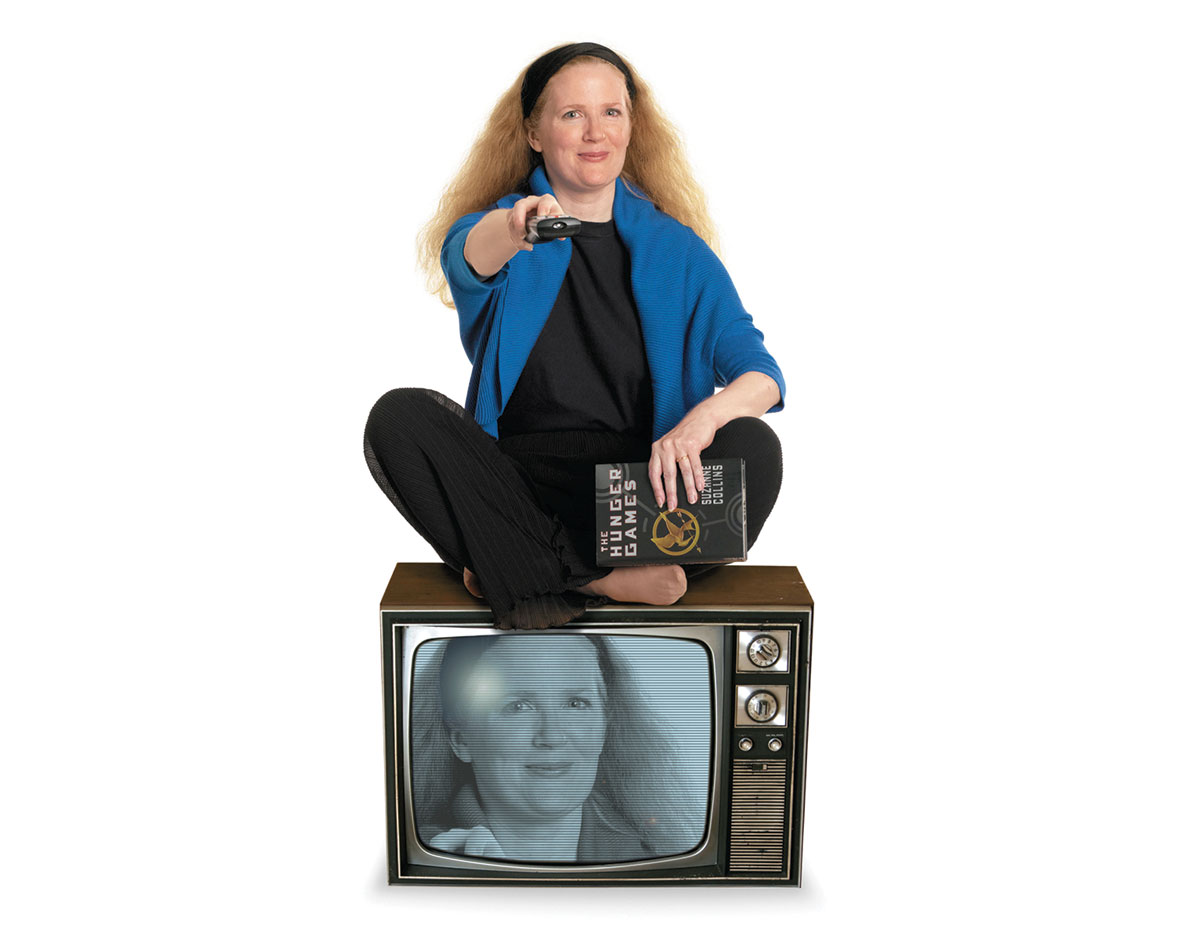A Killer Story: An Interview with Suzanne Collins, Author of ‘The Hunger Games’ | Under Cover
 |
Photograph by Matt Peyton |
Suzanne Collins's 'The Hunger Games' has plenty of blood, guts, and heart
Thanks to a cruel futuristic government, 24 children are chosen by lottery to compete in the annual Hunger Games—a fight to the death that's televised live. How did you come up with that idea?
It’s very much based on the myth of Theseus and the Minotaur, which I read when I was eight years old. I was a huge fan of Greek and Roman mythology. As punishment for displeasing Crete, Athens periodically had to send seven youths and seven maidens to Crete, where they were thrown into the labyrinth and devoured by the Minotaur, which is a monster that’s half man and half bull. Even when I was a little kid, the story took my breath away, because it was so cruel, and Crete was so ruthless.
You’re not kidding.
The message is, mess with us and we’ll do something worse than kill you—we’ll kill your children. And the parents sat by apparently powerless to stop it. The cycle doesn’t end until Theseus volunteers to go, and he kills the Minotaur. In her own way, Katniss [the heroine of The Hunger Games] is a futuristic Theseus. But I didn’t want to do a labyrinth story. So I decided to write basically an updated version of the Roman gladiator games.
What inspired you to write it?
One night, I was lying in bed, and I was channel surfing between reality TV programs and actual war coverage. On one channel, there’s a group of young people competing for I don’t even know; and on the next, there’s a group of young people fighting in an actual war. I was really tired, and the lines between these stories started to blur in a very unsettling way. That’s the moment when Katniss’s story came to me.
Why did those programs speak to you so deeply?
When I was a kid, my dad fought in Vietnam. He was gone for a year. Even though my mom tried to protect us—I’m the youngest of four—sometimes the TV would be on, and I would see footage from the war zone. I was little, but I would hear them say “Vietnam,” and I knew my dad was there, and it was very frightening. I’m sure that a lot of people today experience that same thing. But there is so much programming, and I worry that we’re all getting a little desensitized to the images on our televisions. If you’re watching a sitcom, that’s fine. But if there’s a real-life tragedy unfolding, you should not be thinking of yourself as an audience member. Because those are real people on the screen, and they’re not going away when the commercials start to roll.
What was the most difficult part of writing the story?
When you’re going to write a story like The Hunger Games, you have to accept from the beginning that you’re going to kill characters. It’s a horrible thing to do, and it’s a horrible thing to write, particularly when you have to take out a character that is vulnerable or young or someone you’ve grown to love when you were writing them.
You began your career writing children’s TV. Are you still doing that?
I have been freelancing on a Nick Jr. show called Wow! Wow! Wubbzy! I adore it. It’s a very fun preschool show that’s set in this imaginary town called Wuzzleburg. When I was working on The Hunger Games—there’s not a lot of levity in it—I’d do a Wubbzy script. It’s an enormous relief to spend some hours in Wuzzleburg, writing an 11-minute episode, where I know things are going to work out just fine and all the characters will be alive at the end of the program.
Rick Margolis former SLJ’s executive editor. The Hunger Games (Scholastic) is the first book of a trilogy.
RELATED
The job outlook in 2030: Librarians will be in demand
The job outlook in 2030: Librarians will be in demand
ALREADY A SUBSCRIBER? LOG IN
We are currently offering this content for free. Sign up now to activate your personal profile, where you can save articles for future viewing






Add Comment :-
Comment Policy: